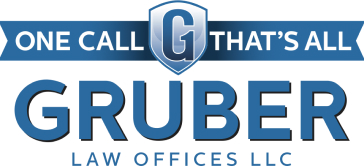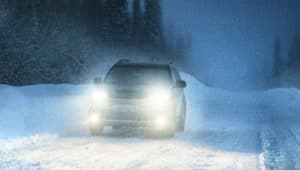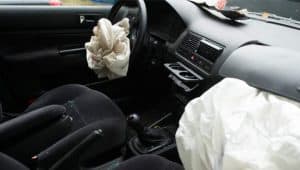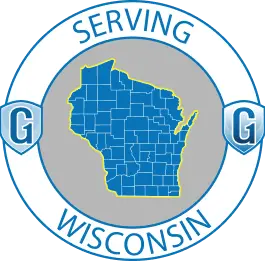
Parents in Milwaukee and other areas of Wisconsin often worry about their teen drivers. There is a good reason for concern: Statistics show that teenagers are more likely to get into car accidents than drivers in other age groups.
In fact, the National Highway Traffic Safety Administration (NHTSA) reports that drivers under the age of 20 are three times more likely to be involved in a car accident than the general population. This is especially a problem among males under the age of 20, who cause six times more crashes than the average driver, according to the NHTSA.

The effects of unsafe teen driving can be devastating. During one recent year, the NHTSA determined, more than 175,000 teenage drivers were injured in car accidents.
No parent wants to go through the heartbreak of seeing a child hurt in a crash – or worse. Of course, in addition to worrying about the safety of their young driver, parents also have to worry about their finances. Teen driver accidents can result in significant financial costs in the form of liability and increased insurance rates.
Wisconsin Teen Driver Accidents: Can Parents Be Held Liable?
The state of Wisconsin has a Graduated Driver’s License Program (GDL). This type of program puts certain legal restrictions on teen drivers. They cannot obtain an unrestricted license until certain criteria have been met.
In order to receive a driver’s license, all teenagers between the ages of 15.5 and 18 must have an adult sponsor. For most teenage drivers, one of their parents will be their primary sponsor.
This program lets young drivers obtain experience behind the wheel under the tutelage of a trusted adult. Of course, parents are also rightfully worried about their potential accident liability.
If your teen driver causes an accident, as a parent, you can be held liable for the damages your teen causes. This occurs under a theory of liability known as vicarious liability.
Under Wisconsin law, a parent who signs a child’s license application can be held liable for the child’s negligent or intentional misconduct with a motor vehicle.
For a free legal consultation, call (414) 276-6666
Teen Driver Accidents Can Cause Insurance Rates to Rise

Beyond liability, parents also need to consider the costs of insurance. A teenage driver’s car accident can cause your insurance rates to rise.
Of course, if you are parent with a teen driver, you already know that it is extremely expensive to insure them in the first place. Earlier this year, Forbes reported that adding a teen driver to your policy can cause your rates to rise by as much as 90 percent. The last thing you want is additional insurance costs due to a crash.
The good news: You can take proactive steps that can dramatically reduce the chance that your teen will be involved in an accident.
Here are seven specific tips:
Control your teen’s speed.

Driving is exciting for young adults. Most teens dream about getting their license for years before it actually happens. As such, it is natural that they want to get behind the wheel and go fast. However, you need to drill into the mind of your teen the dangers of speeding. Not only will speeding lead to costly tickets, and potentially the loss of the teen’s license, but it also could endanger the safety of everyone on the road.
Teach your teen about leaving space.

Knowing how close to follow behind another car is a learned skill. Many people on the road do not leave enough space for other cars. You do not want your teen to learn from these other drivers. Teach your teen about how much space is needed and the importance of braking distance. Remember: If you cannot stop your car without hitting (or nearly hitting) the vehicle in front of you, you are following too closely.
Show your teen how to use mirrors the right way.

Vehicles are equipped with mirrors for a reason. Teen drivers need to know how to properly check their mirrors every time they pull out of a space or change a lane.
Remind your teen that blind spots are real (and dangerous).

While mirrors are important, they do not give a driver a full range of vision. Teens often fail to understand their blind spots. When making a lane change, it is imperative that teens learn to get into the habit of turning their head. Please ensure that your teen checks blind spots every time the teen drives.
Stress using signals to your teen.

Under Wisconsin law, drivers must use signals when they change lanes or make a turn. Unfortunately, many drivers get lazy and simply do not bother with signaling when they feel like no one else is around. This is a bad habit. You must make sure that your teen avoids it. Turn signals are a safety precaution. In some cases, drivers may think they are all alone on the road when they really are not.
Talk about using headlights.

As soon as the sun begins to set, teens must put their headlights on. Once again, your teen driver should get into the habit of putting headlights on whenever it is remotely necessary.
Above all, tell your teen to avoid distractions.

The single biggest safety problem facing teen drivers is distraction. Distractions can come in many different forms, from eating behind the wheel to talking to a friend in the passenger seat.
Of course, the biggest and most dangerous distraction comes from that cell phone. Remind your teen: It is never safe to talk on the phone or text while behind the wheel. Distracted driving can destroy lives. If you find that a teen has been using the phone while driving, take corrective action immediately. You may need to suspend the teen’s driving privileges.
Do You Need Legal Advice?

If your teen driver was recently involved in an automobile accident, or if you were struck by a teen driver, our team is ready to help. At Gruber Law Offices, LLC, our dedicated car accident attorneys have extensive experience handling Wisconsin teenage driving crashes.
To learn more about what we can do for you, please feel free to contact our office today. Our firm serves parents and teens throughout the Milwaukee region, including in Racine County, Waukesha County and Kenosha County.
Disclaimer: This post provides general information but is not legal advice and should not be construed as legal advice.
Call or text (414) 276-6666 or complete a Free Case Evaluation form















